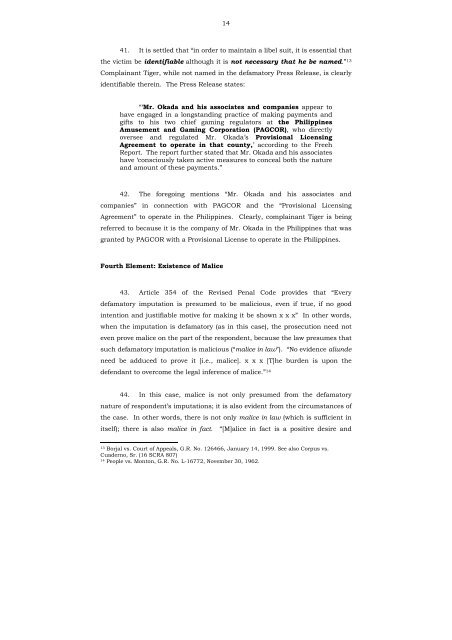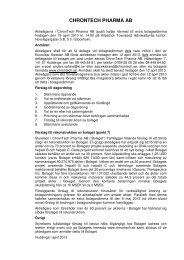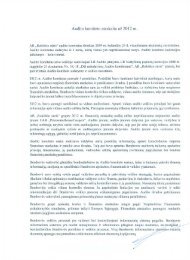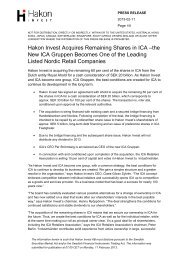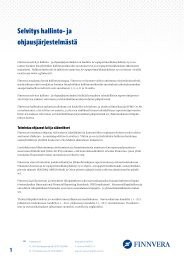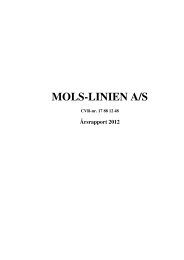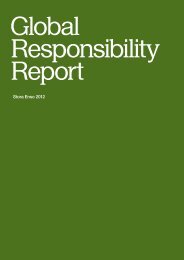COMPLAINT-AFFIDAVIT
COMPLAINT-AFFIDAVIT
COMPLAINT-AFFIDAVIT
- No tags were found...
You also want an ePaper? Increase the reach of your titles
YUMPU automatically turns print PDFs into web optimized ePapers that Google loves.
1441. It is settled that “in order to maintain a libel suit, it is essential thatthe victim be identifiable although it is not necessary that he be named.” 13Complainant Tiger, while not named in the defamatory Press Release, is clearlyidentifiable therein. The Press Release states:“‘Mr. Okada and his associates and companies appear tohave engaged in a longstanding practice of making payments andgifts to his two chief gaming regulators at the PhilippinesAmusement and Gaming Corporation (PAGCOR), who directlyoversee and regulated Mr. Okada’s Provisional LicensingAgreement to operate in that county,’ according to the FreehReport. The report further stated that Mr. Okada and his associateshave ‘consciously taken active measures to conceal both the natureand amount of these payments.”42. The foregoing mentions “Mr. Okada and his associates andcompanies” in connection with PAGCOR and the “Provisional LicensingAgreement” to operate in the Philippines. Clearly, complainant Tiger is beingreferred to because it is the company of Mr. Okada in the Philippines that wasgranted by PAGCOR with a Provisional License to operate in the Philippines.Fourth Element: Existence of Malice43. Article 354 of the Revised Penal Code provides that “Everydefamatory imputation is presumed to be malicious, even if true, if no goodintention and justifiable motive for making it be shown x x x” In other words,when the imputation is defamatory (as in this case), the prosecution need noteven prove malice on the part of the respondent, because the law presumes thatsuch defamatory imputation is malicious (“malice in law”). “No evidence aliundeneed be adduced to prove it [i.e., malice]. x x x [T]he burden is upon thedefendant to overcome the legal inference of malice.” 1444. In this case, malice is not only presumed from the defamatorynature of respondent’s imputations; it is also evident from the circumstances ofthe case. In other words, there is not only malice in law (which is sufficient initself); there is also malice in fact. “[M]alice in fact is a positive desire and13 Borjal vs. Court of Appeals, G.R. No. 126466, January 14, 1999. See also Corpus vs.Cuaderno, Sr. (16 SCRA 807)14 People vs. Monton, G.R. No. L-16772, November 30, 1962.


